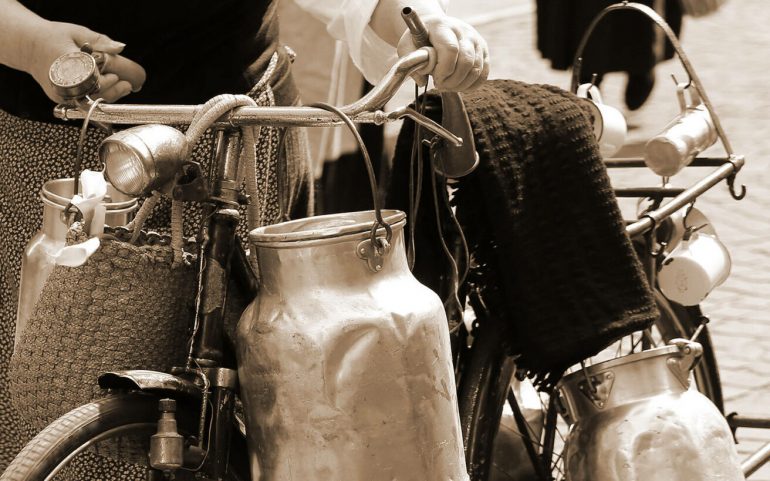"Flip flops, slippers, sandals, the shoe". "Newspapers, newspapers…". "I know Bakiria". These and other phrases are integral parts of childhood memories. Not too many years ago, but certainly a time when his professions were coming to an end when today they have almost disappeared. And some of them in the era of multinationals, golden boys, modern professions, sound foreign, strange and unfamiliar words, like the radio cassettes that raised us.
Professionals who either did not have a home and their "shop" was the street, or they had, but some days during the week they took their trucks and went to its villages province and they were selling their wares.
I grew up in a village in the countryside and my childhood memories mixed with colors, perfumes, laughter, and the duduks of itinerant professionals that I remember waiting for them how and how to come. Today is a sweet memory with mixed feelings: joy I got this season, sadness that the dust came and covered these professions which have almost disappeared, having taken their place in the timeline of history.
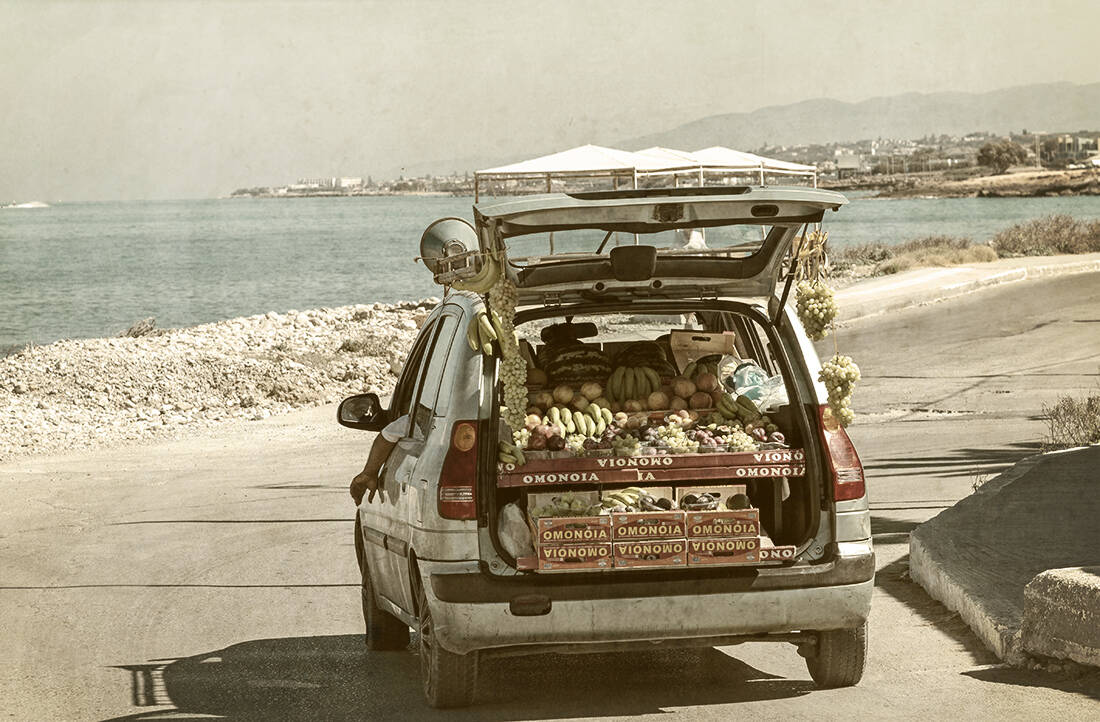
Sounds like a joke, but my mother made the dowries of all three brothers on the street. Once on the 15th day, the truck came with the merchant who was selling dowry items (semedakia, embroidery, blankets, tablecloths, etc.) and all the women of the neighborhood gathered to see what a nice new one it brought. In fact, the transaction was not done with money, but with oil.
In general, oil was preferred by most street vendors, so every year, my mother would put aside a shopping spree. Except dowry, there was a merchant who came from Athens every Sunday and sold shoes. Every Friday we had the clothes dealer, while during the week the fisherman came from Kiato to sell fresh fish, the greengrocer, the chicken, the flour and so on.
A very moving figure. Carrying the tools of the work on his back, he called with his stout voice to the women of the neighborhood to bring their groceries for glaze. Copper household utensils, such as cauldrons, spoons, forks, often needed galvanizing and polishing with tin, or glaze.
Usually, he was hosted in the yard of a house, where he set up his gas stove and there all the housewives brought their utensils for the "glaze", which was imposed for health reasons, mainly those used in cooking.
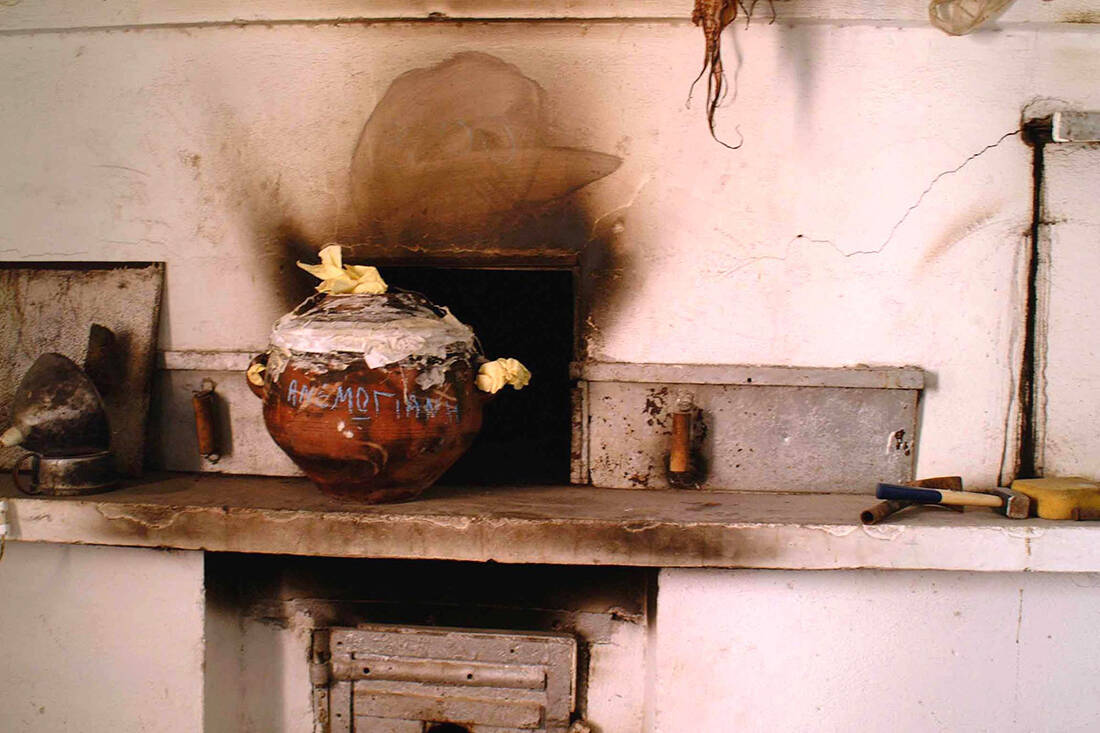
Although they still make wood ovens today, in those years there were builders specializing in their construction since they were made in a traditional way. Specifically, they made him wood oven with concrete blocks with which they formed the base of the oven. With pieces of broken tiles, old bricks and stones for the construction of its dome (the well-known mold). With soil that the builder first sifted and then made into mud that acted as clay and straw that he mixed with clay. And some may think that the construction was not that difficult, but you had to hold your hands and be a good carpenter to have the oven and baking efficiency.
This is also a characteristic figure, with the main feature that the tsambasis (trader and animal trader of that time) was usually a thief in buying and selling. He usually came to zoos, where before the announcement of the appreciation, he weighed the animal "with the eye", felt it and in various ways found out whether he did or not and whether it was worth a lot.
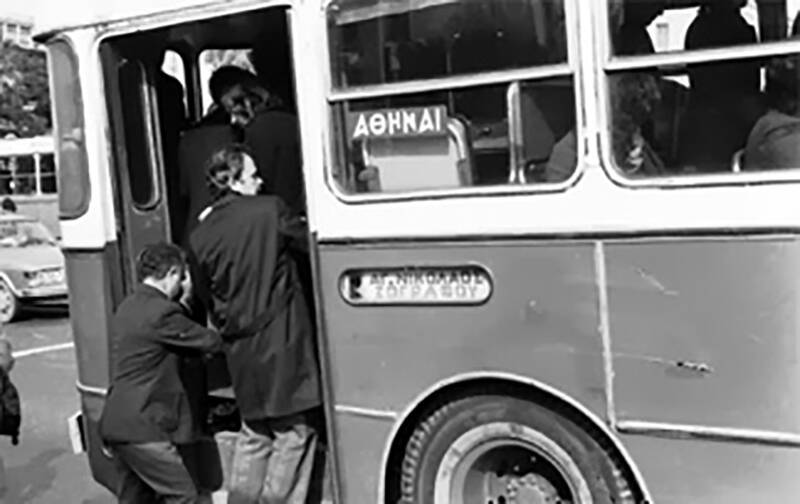
Until a few years ago in the province there were collectors in Buses on domestic routes. And now they exist, but not in the traditional way, but mainly in the form of a controller who goes up to one of the stops and checks the tickets. How was his collector then?
Usually sitting in a specially designed position in the back of the bus, he cut the tickets at the entrance of the passengers, announced the bus stops, or helped the passengers to get on and off, giving instructions. He was also the recipient of passenger complaints as he was blamed for any delays or problems that arose.
"I fix chairs. The chair! " I can still hear the loud voice of the chair that used to come from time to time in the village. And I confess that one of my favorite procedures was the repair of the wicker chair (yes, then we did not have the modern chairs) and I liked watching the carpenter wet the grass he had brought with him to soften it and make it easier to knit wicker base. And after the knitting was finished, he cut the edges of the grass that protruded with the checker and the chair was ready, he had made it like new.
Of course, the above professions, but also some others, also existed in the cities or in the big urban centers. Let's see which ones we used to meet in the cities.
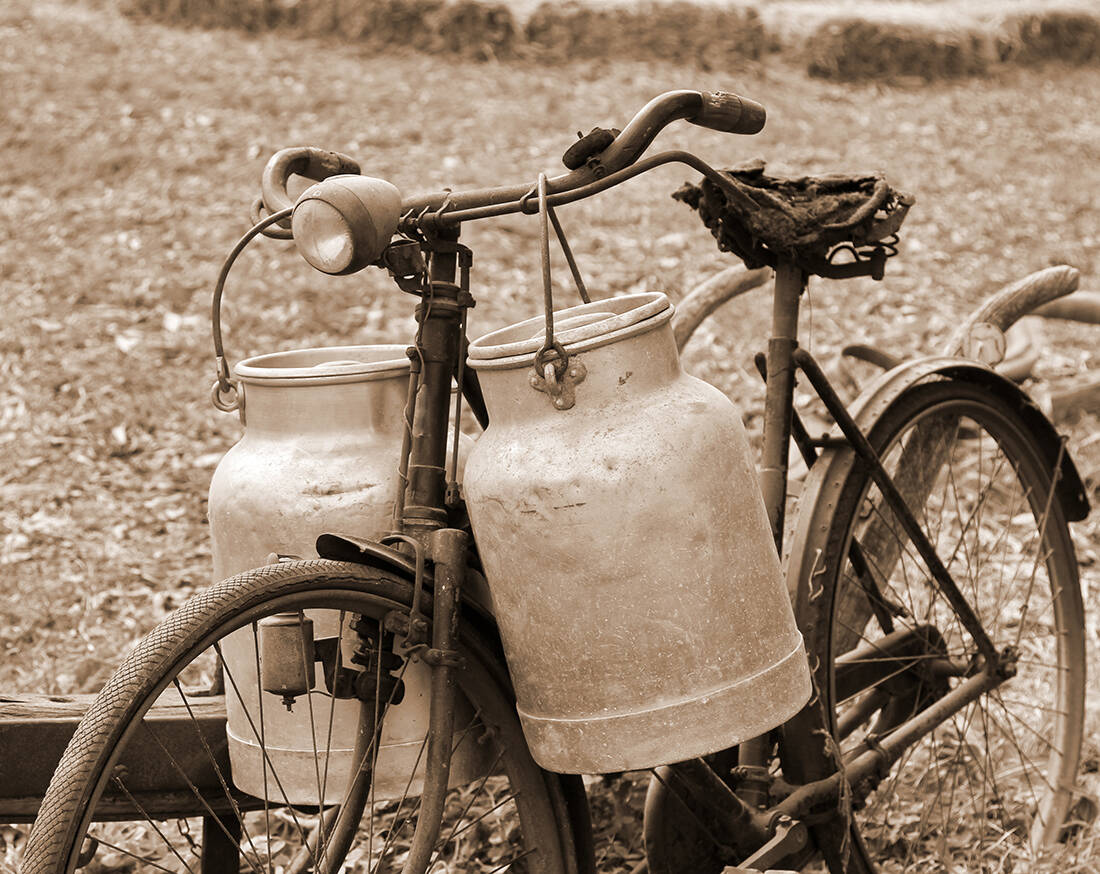
When ULEN did not exist yet, the well-known Olympian Spyros Louis used to carry water to the then few houses of Maroussi. His profession was neroulas and had to supply water to his steady clientele.
Neroulades in many cities existed until recently, while in this case we can not say that it has completely disappeared as a profession, since there are still areas where water is not drinkable. And the neroulas with his truck brings good and clean water, with the inhabitants coming out with their hermitages, which he fills.
A job that you do not call easy, since it is on the road for many hours, in order to serve the customer, but it also has weight and effort from carrying.
"Newspapers, newspapers, special annex D." A classic figure, which brings to mind again and again scenes from old Greek movies. The reason, of course, for the itinerant newsboy, who was wandering the streets rumbled the news of the day.
The itinerant newsagents received the newspapers from the Press Distribution Agencies and promoted the daily circulation of the Greek press by walking in the main streets of the city. In addition to passers-by, he also distributed to the houses, some with their bicycles, which were also his regular customers.
Until a few years ago, the wandering milkman existed as a profession, which today has almost disappeared. The milkman worked in the big urban centers and not in the villages, as there was the possibility, out of necessity, for the direct sale of fresh milk.
Undertook the distribution of milk and other dairy products (such as yogurt or butter) at home. His means of transport was initially a mule and then a bicycle or motorized two-wheeler.
In his childhood and specifically as soon as he finished elementary school, he worked as a milkman in his father's milk shop in Psyrri, George Fountas, who roamed all over Athens on his bicycle.
